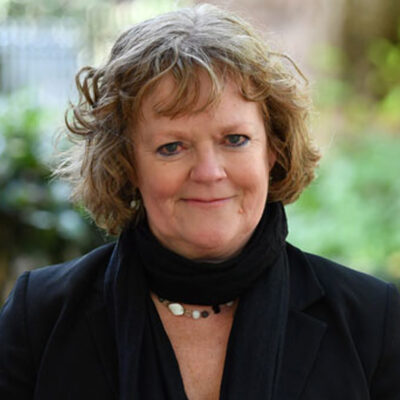The government’s flagship teacher training provider will pilot a new SEND-specific course it hopes can help solve special school recruitment woes.
The National Institute of Teaching (NIoT) will trial a primary postgraduate teacher apprenticeship (PGTA) in 14 London schools this autumn.
Trainee teachers are usually not obliged to spend any time in special schools. But the 14-month course will be completed in a special school, with a six-week placement in a mainstream setting.
If the scheme, supported by the Eden Academy Trust (EAT) which runs six special schools, is successful, it will be rolled out nationally next September.
It comes as special schools are bearing the brunt of the recruitment crisis – with nearly three times more teaching posts filled by temporary workers than in the mainstream.
The government’s SEND reforms also hinge on mainstream schools becoming more inclusive.
But an Ofsted review on professional development this week found ‘teaching students with SEND’ was top of teachers’ wish list for more training.
‘This could make a big difference’
Reuben Moore, executive director of programmes for the NIoT, said: “This is a small pilot programme that could make a big difference in giving trainee teachers the tools they need to support children with special educational needs and disabilities to flourish.
“The SEND sector is understaffed and there is demand for this type of training. If the pilot is successful, it could be an additional, focused, recruitment stream for special schools and can give trainees in mainstream schools a stronger foundation in SEND training.”
Around 14 participants will take part in the PGTA, with additional training taking place in core skills for children with mild learning difficulties and severe learning difficulties.
This includes communication development, social and emotional learning for pre-language learners, as well as a focus on very early maths and very early literacy.
Moore said while the core content on current initial teacher training (ITT) courses “is relevant for all of those who are becoming teachers … there’s also specialist learning that those working in special need to really understand.”
‘Really good idea’ says government adviser
“It’s a really good idea,” said government adviser and director of Sheffield Institute of Education, Professor Sam Twistleton.

“It’s definitely fulfilling a need that’s there…in terms of a pipeline of early career teachers going straight into special schools who need that proper foundation. Now, there isn’t technically a route.”
She warned that there were reservations in the sector that a SEND-specific route could create a “ghettoising of special schools”, but that NIoTs route would offer the “best of both worlds” because teachers would also be qualified to work in mainstream schools.
It is understood that while some individual trainers offer courses with placements within special schools, no such dedicated route currently exists.
Schools Week asked the DfE for the number of initial teacher training (ITT) entrants that have been recruited to courses with a SEND specialism in the past five years, but it did not hold the data.
Susan Douglas, Eden Academy Trust chief executive, added: “Ensuring all teachers enter their career with considerable SEND knowledge can only be a positive thing for mainstream and special schools alike.”
‘Opportunity’ to run across NIoT’s six campuses
NIoT currently has six campuses throughout the country, and several associate colleges. Moore said that given its national infrastructure, “we have the opportunity – if the demand is there – to have groups within each campus”.
“We think there’s going to be uptake for this and we have real interest from the schools and we’re really glad to be working with such great experts.”
A Schools Week investigation in January found that for every 1,000 teacher posts in special schools, 13 were filled by a temporary staff member (1.3 per cent) in 2021. This compares with five in 1,000 (0.5 per cent) across all state-funded schools.
Meanwhile, six in every 1,000 teacher posts within the specialist sector was vacant, compared with three in every 1,000 across state schools.
There has also been a 50 per cent rise in pupils with an education, health and care plan (EHCP) since 2015.
Approximately 1.5 million pupils in England – 16.5 per cent – have SEND, the vast majority of whom attend mainstream schools.
However, there could be potential barriers with rolling out the course for secondary teachers where at least one subject must be identified as the specialism for the qualification. But the course may solve other problems.
Schools will be able to use apprenticeship levy cash – which they many have struggled to use up for consecutive years – to fund the training.
















Your thoughts